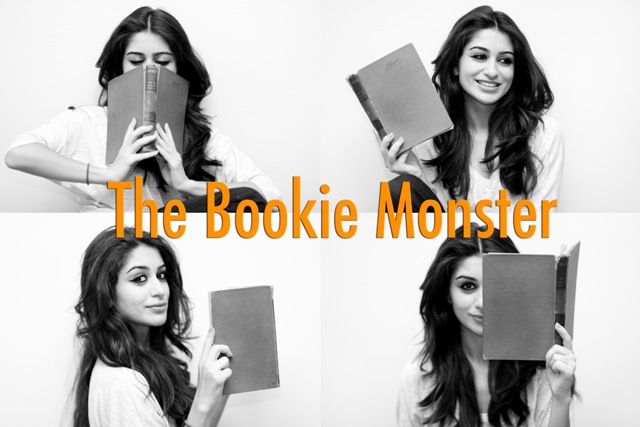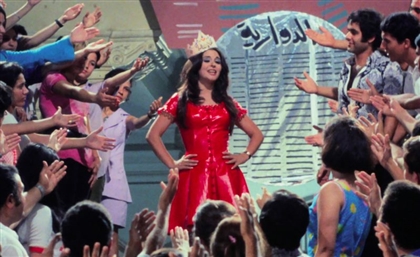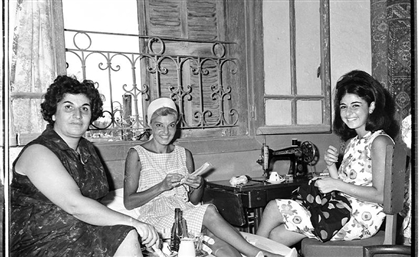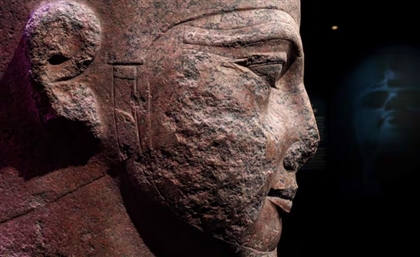Looking For Alaska in Summer
Summer isn't just about sun, sea and sex. It's about what books you read in between all those things. Anam Sufi says John Green's Looking For Alaska is the perfect light read that touches on some heavy subjects...

Put yo drank down. Get out of the water, into the shade, and pick up a book! Because this summer’s hottest trend that defines the who’s who, though mistaken as being what party you attended, is in fact what book you read. Okay, maybe I’m exaggerating… a bit. But a girl can hope, and so, like Sisyphus. I’m soldiering on in my epic struggle to bring back the book; this time addressing John Green’s Looking for Alaska.
Usually I tend to be a bit critical of literature that lacks the spectrum of skill involved in creating complex characters and plots. Of course, you have your exceptions, what with works like J.D Salinger’s The Catcher in the Rye and Kazou Ishiguru’s The Remains of the Day, in which the barren nature of narrative is what contributes to the greatness of the works themselves. Having said this, I was very pleased to come across a contemporary novel that manifests similar (Disclaimer: but be careful, it’s not on the same level at all) simplicity in a fashion that enables the reader to feel as though he/she is in intimate conversation with the protagonist.
Although John Green’s Looking for Alaska targets young adults, the raw simplicity of a sixteen-year-old narrating the series of events that unfold during his first year at boarding school are intensely moving. Having emerged from the realm of being a “young adult”, my personal experience whilst reading the novel was a cocktail of humorous nostalgia and reflective insight. #ImSpeakinginAbstractions.
The narrator of the story is an involuntary sixteen-year-old recluse who goes by the name of Miles Halter. With a penchant for learning the “last words” of deceased famous people, he is a friendless outcast at his school in Florida (Can I just say, I wish I knew people with such cool idiosyncrasies?). The novel opens with him declaring and acting on his decision to move to a boarding school (Culver Creek) in Alabama, a decision that his doting parents respect with little protest. Upon arriving at the school he is quick to befriend his roommate (the Colonel) and the “hottest girl” he’s ever seen, Alaska. The trio quickly become best friends and go through life at school causing mayhem, breaking rules, and avoiding repercussions (a routine I’m sure we are/were all well versed in at some point in time).

As the plot unfolds, the reader gains insight into the deeper aspects of each character, particularly Alaska. She is the girl we all knew in high school. The one who knew she was as hot as she was, and didn’t care to mask it. Her charm exceeds all forms of adult approved boundaries, and in somber terms: she’s a tease. Of course, with being a tease, comes the line of boys who fall in love with her, but none of which are actually able to fully get a hold of her.

Perhaps (and perhaps not) like our own high school archetypes of such a girl, Alaska carries a harrowing past within her that soon reveals her bombastic behaviour as an attempt to over-compensate for a tragic past, one that largely contributes to the vacillating tendency of her personality.
I don’t want to give too much away by providing any more summary of what happens in the book, but ultimately, the plot peaks when tragedy strikes the lives of the free living (and loving) teenagers, and then the story transcends its adolescent framework and takes on the far more mature subject of overcoming loss, understanding love, and accepting the temporal for all its worth.
The reckless behavior that the characters exhibit has the reader coveting the thrill of such experiences, and in my case at least, mulling over the excitement of being under aged. You have to admit, these things are hardly as fun when you’re “allowed” to do them.

Looking for Alaska is a surprisingly profound read. It will have you laughing at some points and knitting your eyebrows at others. The youthful perspective on death, love, and belonging, otherwise such complicated subjects, begins to be understood in manageable and voracious terms.
I know summer for most of you is all about sun, seduction, spirits, and socialising, but I implore you to save your brain cells for some intellectual (and arguably emotional) stimulation. If you can’t be assed with reading something heavy, settle for something like Looking for Alaska.
That’ll do pig. That’ll do.
Quotes from the book:
“I mean its stupid to miss someone you didn’t even get along with. But, I don’t know, it was nice, you know, having someone you could always fight with.”
“Imagining the future is a kind of nostalgia. (...) You spend your whole life stuck in the labyrinth, thinking about how you'll escape it one day, and how awesome it will be, and imagining that future keeps you going, but you never do it. You just use the future to escape the present.”
“Her underwear, her jeans, the comforter, my corduroys and my boxers between us, I thought. Five layers, and yet I felt it, the nervous warmth of touching – a pale reflection of the fireworks of one mouth on another, but a reflection nonetheless. And in the almostness of the moment, I cared at least enough. I wasn’t sure whether I liked her, and doubted whether I could trust her, but I cared at least enough to try to find out. Her on my bed, wide green eyes staring down at me. The enduring mystery of her sly, almost smirking, smile. Five layers between us.”
- Previous Article I Got Banged!
- Next Article Nomades Land
























